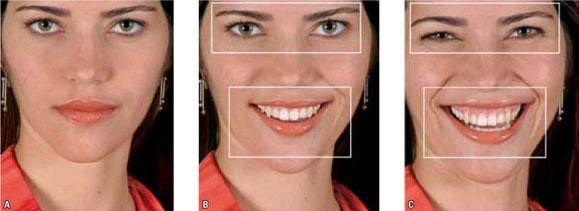Duchenne Smiles and possible Darwinian Value.
Did you know...
Charles Darwin performed one of the earliest studies in emotional expression? He studied how people recognize emotion in faces, specifically smiles. Darwin published The Expression of the Emotions in Man and Animals in 1872. Darwin states that man and animals “descent from a common progenitor”. (pg352) That is, he believed emotional expression to be universal between humans and other animals thus believing these expressions are inherited. Body language behaviour's however, are learned and differ across cultures.
Gestures, such as the raising of arms with open hands and extended fingers as a sign of wonder, are possibly inherited seeing how similar expressions are shared across races, exhibited by the blind and even young children. Newborns know that screaming attracts the attention of caretakers, and learn that smiling maintains the attention. This keeps them safe and fed which serves to reinforce the behaviour; screaming is therefore rewarding. Smiling reinforces positive affect in the smiler and non-smiler, and the infant learns that smiling is rewarding. Do we smile as a result of Darwinian value?
The Duchenne Smile and non-Duchenne smile.
 These photos show the differences between a Neutral (Expressionless) Face, Non-Duchenne (Social/Polite) Smiles and Genuine (Duchenne) Smiles.
These photos show the differences between a Neutral (Expressionless) Face, Non-Duchenne (Social/Polite) Smiles and Genuine (Duchenne) Smiles.
Darwin worked with Guillaume-Benjamin-Amand Duchenne de Boulogne, on “Expression”.
"Duchenne was a French neurologist interested in determining how the physiognomy of the face produced facial expressions, which he thought were directly linked to the soul. His investigations involved electrically stimulating various muscles and identifying corresponding emotions. Along the way he identified a particular type of smile that engages both the zygomatic major and the orbicularis oculi — muscles that raise the corners of the mouth and cheeks, respectively. In other words, a big, genuine smile contracts the corners of our mouth and eyes" and is referred to as a Duchenne smile.
Our brain and motor system control our ability to smile.
A Psychology Today report explains Duchenne smiles are controlled by the limbic system (emotional part of brain) and non-Duchenne smiles are controlled by the motor cortex. “When a patient with damage to the motor cortex on the brain's left hemisphere attempts to smile, the smile is asymmetrical, with the right side of the smile not moving as it should. However, when that same patient spontaneously laughs, the smile is normal with no asymmetry. This means that the genuine smile is controlled by some other part of the brain. Now, when a patient with damage to the anterior cingulate (part of the limbic system) in the left hemisphere attempts to smile, there is no asymmetry. The smile is normal. However, when that same patient tries to smile spontaneously, the asymmetry appears." These results suggest that friendly/polite/social smiles are controlled by the motor cortex while emotion-related movements (eg: the Duchenne smile) is controlled by the limbic system.
Smiling is socially rewarding.
Genuine smiles are a form of social reward. Dr. Erin Heerey of Bangor University (UK) proposed that social smiles are polite smiles offered when socially appropriate, and that genuine smiles are spontaneous, signify pleasure and engage muscles around eye. When first meeting, strangers will often match the smile of their partner, whether genuine or polite. Dr.Heerey's research found that because genuine smiles are more socially rewarding, therefore more expected compared to polite smiles (less socially rewarding), strangers respond to genuine smiles much faster than polite smiles. A smiling person is also more likely to be approached in a crowd.
Do we gravitate toward strangers projecting positive emotion?
A study on emotional attunement relied on the variation of expression for positive emotions to determine the role of Duchenne smiles in real life social interaction and the resulting spontaneous emotional behaviour. Participants (dating couples) were required to track their partner's emotions, it was found that both men and women tracked positive emotions with better accuracy compared to negative emotions.
Emotions whose display is most strongly linked with Duchenne smiles (amusement, happiness and love) were tracked with significantly more accuracy than positive emotions not characterized with Duchenne smiles. This suggests Duchenne smiles play a critical role in social interactions since they occur when positive emotion (feelings of affiliation, cooperation and play in a relationship) is felt. When forming new relationships, people are simply more in tune and most likely to respond to someone displaying positive emotion. People can also tell if a smile is "fake". Being aware of positive emotion help form and maintain relationships.
So basically, good things happen when you smile! Smiles that show off “crows feet” and lift the cheekbones are interpreted as more genuine (a Duchenne smile) compared to smiles that only turn up the corners of the mouth (a social or standard smile). A genuine smile is expected thus rapidly noticed by strangers, further enhancing social interaction. It is also closely linked to relationship outcomes and happiness levels.
Fascinating that a simple smile is the result of many facets. Who knew! I hope you learned something new because I certainly did.
Smile!

Hello @bellekaur,
Congratulations! Your post has been chosen by the communities of SteemTrail as one of our top picks today.
Also, as a selection for being a top pick today, you have been awarded a TRAIL token for your participation on our innovative platform...STEEM.
Please visit SteemTrail to get instructions on how to claim your TRAIL token today.
If do not wish to be promoted by SteemTrail, please reply with "Stop" to opt out.
Happy TRAIL!

In Russia, we smile rather seldom, but genuine smiles are really appreciated. If a Russian person smiles to you, it most often means they're really friendly and relaxed.
That's so nice to know! I have met a couple friendly, smiley Russians. 😃
I'm smiling...
:D!
Smile on, steemit :D
:D
Thanks for stopping by Randy!
:) Virtual Smile
As long as you're smiling! 😄
Such a great work.